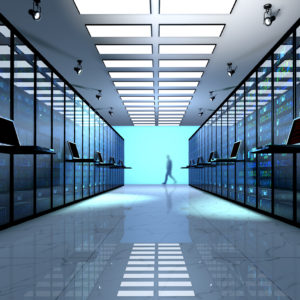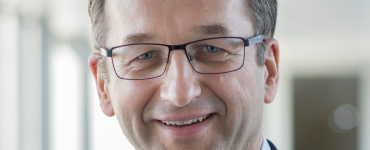The Alliance for the Strengthening of Digital Infrastructures in Germany, initiated by the eco Association, denounces the Blue Angel guideline revisions planned by the German Environment Agency (UBA) as being still unsuitable and impractical. Dr Béla Waldhauser, Spokesperson for the Alliance for the Strengthening of Digital Infrastructures in Germany, comments:
“The Blue Angel guidelines must become manageable and practicable for data centres. In revising the Blue Angel eco-label, the UBA missed the opportunity to make the very rigid catalogue of requirements more flexible and to strengthen the practicability of the Blue Angel label. The fact is that data centre operators have a vested interest in increasing the efficiency of their data centres as much as possible.
The Blue Angel criteria recognise existing and practised concepts for the self-power supply of data centres. However, on the subject of waste heat utilisation – the new Blue Angel criterion – the same problem exists as with the German federal government’s planned German Energy Efficiency Act. In principle, it makes sense to reflect the willingness of operators to release waste heat within the framework of the Blue Angel guidelines. Still, one of the major challenges is finding customers for the waste heat. Since the necessary municipal heating network infrastructure has not been developed, the operators have, so far, only found a few customers. In addition, the possibility of utilising waste heat is basically location-dependent and not possible everywhere. At this point, it is the task of politicians to create a market for consumers of waste heat, as well as sufficient resources for green electricity from renewable energies. Otherwise, these potentials cannot be utilised.”
eco Alliance calls for realistic requirements for energy supply
Even before the innovation, the eco Alliance had called for realistic requirements for energy supply. According to Waldhauser, “Data centres awarded the Blue Angel label must be supplied with 100 per cent electricity from renewable energy sources. This is worthy of support, but we are not yet at this point because politicians have slept through the energy transition by more than ten years. Even the utilisation of own electricity can thus only be a building block of supply but will not be sufficient to cover the entire electricity demand of data centres.”
Blue Angel has little international significance
At the same time, however, the problem remains that the Blue Angel label has little penetration in the international market, warns Waldhauser:
“I think European self-regulatory initiatives such as the Climate Neutral Data Centre Pact make much more sense. Most data centres in Germany operate in European and international competition, so nationally awarded eco-labels have little relevance and recognition among international customers.
The actual main issue with the Blue Angel label is the arbitrarily set thresholds, which lead to a lack of market and industry acceptance. I do not expect the number of Blue Angel label holders in the industry to increase significantly after the directive amendments. The requirements criteria for the Blue Angel label must be much more closely aligned with European norms, industry standards and agreements. In particular, it would be necessary to adapt the certification to the practical realities of data centres. Convergent and connectable criteria should also be the focus for the Blue Angel label. This is the only way to create comparability and transparency in a European market environment as well as added value for data centres and their customers.”




